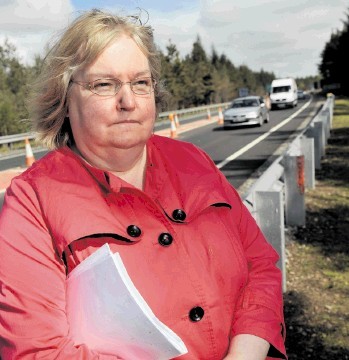
Doubts remain about Highland Council’s ambitious hopes for community payouts from windfarms and other renewable energy developments.
Nothing is guaranteed because the Scottish Government has no intention of making such compensation from multimillion-pound energy firms compulsory.
Council leader Michael Foxley has pledged that money that is donated by developers will be distributed widely.
He dismissed the claim of Inverness councillor Jim Crawford that the authority will siphon off 45% of any proceeds to supplement the council’s own £600million budget.
He believes the government should legislate to compel firms to pay into a community fund and that the developers should substantially increase the amount of money currently paid.
“I’d also like to see them fund apprenticeships and local job training and offer equity shares as the Forestry Commission Scotland does,” he said.
Under the existing council package, future donations will be split between communities based on the proximity of their proposed green energy schemes, the visual impact of the development and the number of nearby homes.
The first £100,000 of annual benefit will be managed by a local fund. Of any remaining money, 55% will also go to community funds. A further 30% will go to a Highland-wide fund and 15% will go to a separate Highland Trust Fund for communities unlikely to have renewable energy schemes of their own but that provide facilities such as power lines to facilitate them.
The template concerns Strathdearn Community Council chairwoman Vivian Roden, who has closely monitored the process.
“Calculations on the number of residences could disadvantage small communities close to windfarm sites,” she said.
“Inverness could be disproportionately advantaged by receiving community benefit from windfarm developments in the hinterland with little effect on the city other than limited visual impact.”
Councillor Crawford, a vocal opponent of windfarms, said: “If this type of benefit isn’t a bribe why would a private, profit-making company offer money at all?
“It is a costly and immoral method of getting a local community onside while applying for planning permission.”
Community workshops are being organised this month to further explain the policy.